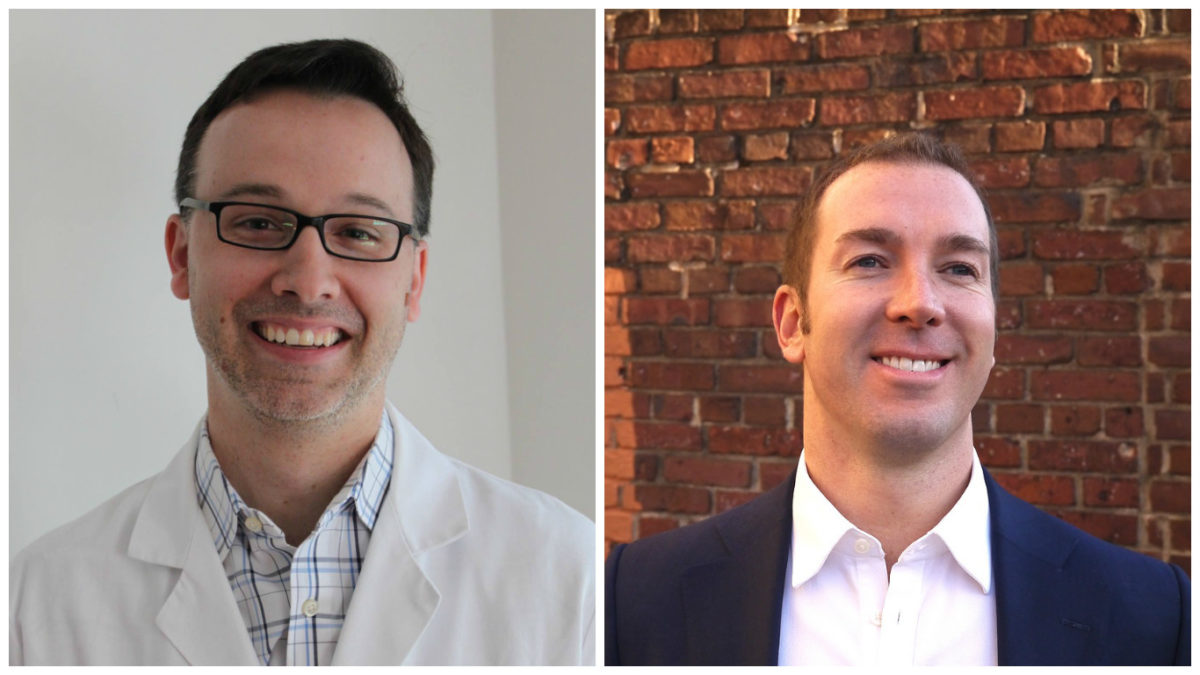With CoapTech, Steven Tropello and Howard Carolan are working on new technology for replacing patients’ feeding tubes.
The approach, called Percutaneous Ultrasound Gastrostomy, or PUG, utilizes a device with magnets that doctors can use to guide a feeding tube into place. It also features an ultrasound that allows doctors to see what is happening inside the body as the tube as it goes to the stomach, and identify the safest site for the tube to be placed.
Tropello, an emergency physician at the University of Maryland School of Medicine, realized the need for a new approach when he couldn’t bring together the specialist and the expensive medical equipment required to replace a patient’s feeding tube during a night shift. As the patient was admitted to the hospital overnight, he realized it was also a cost issue. Tropello created a way to insert the feeding tube that wouldn’t have to be done in an operating room, and would cost less.
“It can allow this procedure to be done in a simpler setting,” Carolan, the company’s CEO, said of the new technology.
The technology could be applied to a number of medical areas, but the cofounders believe the feeding tube use has a “favorable” prognosis to be approved by the FDA, and comes with relatively low risk.
But creating the company involved more than the technology. UM Ventures Chief Commercialization Officer Phil Robilotto said not all inventors have the motivation to commercialize their technology, and the university may seek licensing deals with bigger companies. But Tropello’s drive was evident.
“He was very motivated to make this work,” Robilotto said.

The cofounders also had help. The company’s development to date is a tour of one path through the partners and resources that are specifically in place to help startups.
First, there’s the resources at the University of Maryland in Baltimore. Through UM Ventures, the cofounders worked with several experts on commercialization and navigating the regulatory path. They also negotiated a licensing deal that was finalized last month.
Carolan and Tropello also received funding from TEDCO’s Maryland Innovation Initiative as they worked on initial pilots with cadavers. Most recently, they received a $150,000 Phase III award. Along with helping development, the cofounders hope it will help position the company as they raise a seed round.
To create one prototype, the team worked with Root3 Labs, a Randallstown firm that works with companies on device prototyping.
The cofounders also found space near UMB to work on the company in Spark Baltimore at Power Plant Live.
To Robilotto, this one company’s story is a sign of how there are now more resources in place to help create startups out of technology developed at the university.
“It’s a much more startup-inclusive environment than it was a few years ago,” he said.
How CoapTech turned a feeding tube innovation into a company







